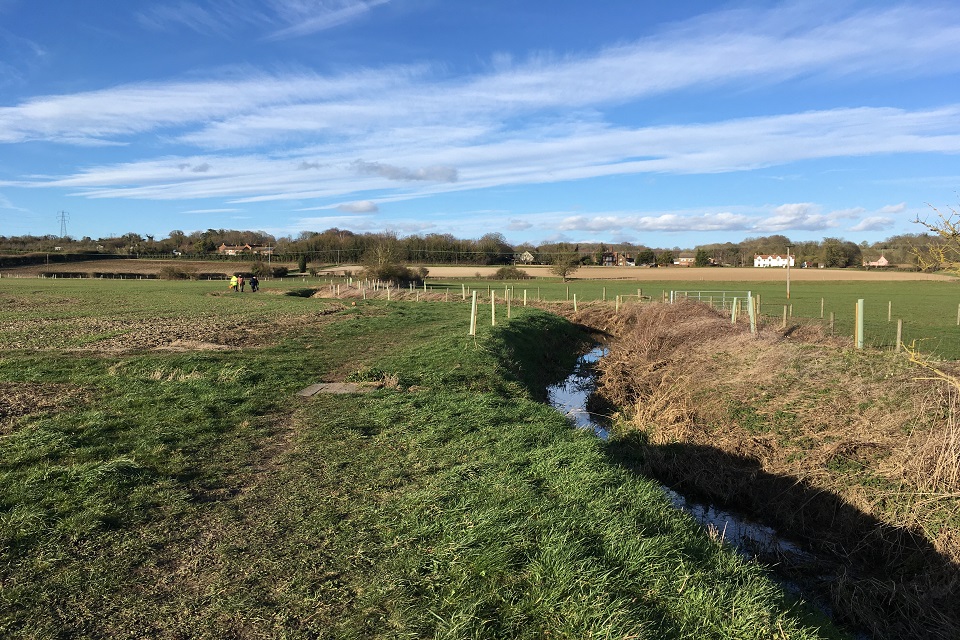The goal was to help improve river habitat diversity and contribute to efforts to reach the 'Good Ecological Status' classification.
This classification is required under the Water Framework Directive, which aims to protect and improve the water environment.
Over the past 2 winters, teams have planted almost 900 trees along 10 kilometres of the river. The project team have planted 7 kilometres of trees along the River Gipping, 2 kilometres along the River Rat at the Museum of East Anglian Life, and a further 1 kilometre along the Somersham watercourse at Little Blakenham.
These sections of river were chosen because they had little existing tree cover and would benefit from the increased shading the trees will provide.
This shading will help mitigate the effects of our changing climate by helping to keep the river cool in summer. This will have big benefits for fish and invertebrate populations.

The trees will also provide valuable bankside habitat for breeding birds and for bats, otters and invertebrates.
It is also expected that shading will help control vigorous plant growth within the river channels at some locations. This will reduce the need to carry out costly in-channel vegetation clearance.
In time, the tree roots will help to stabilise the river banks leading to less sediment entering the water, which will help improve water quality. The roots will also provide vital habitats for fish as will low-hanging branches trailing into the watercourse.
The trees will also provide valuable bankside habitat for breeding birds and for bats, otters and invertebrates. As well as enhancing the landscape quality of the Gipping valley.
Two brushwood mattresses were also installed in the River Rat, which flows through the grounds of the Museum of East Anglian Life at Stowmarket. These mattresses will create in-channel habitat diversity by improving flow and will provide an attractive habitat for both fish and invertebrates.
Naomi Boyle, environment programme officer at the Environment Agency, said:
We are thrilled to have worked with Suffolk Wildlife Trust on this key project, which will help our rivers adapt to the changing climate.
We would like to thank the 13 landowners who made this work possible by letting us plant on their land.
We hope to continue this work elsewhere in Suffolk. If you own land with river frontage and have an interest in improving its biodiversity then please do






